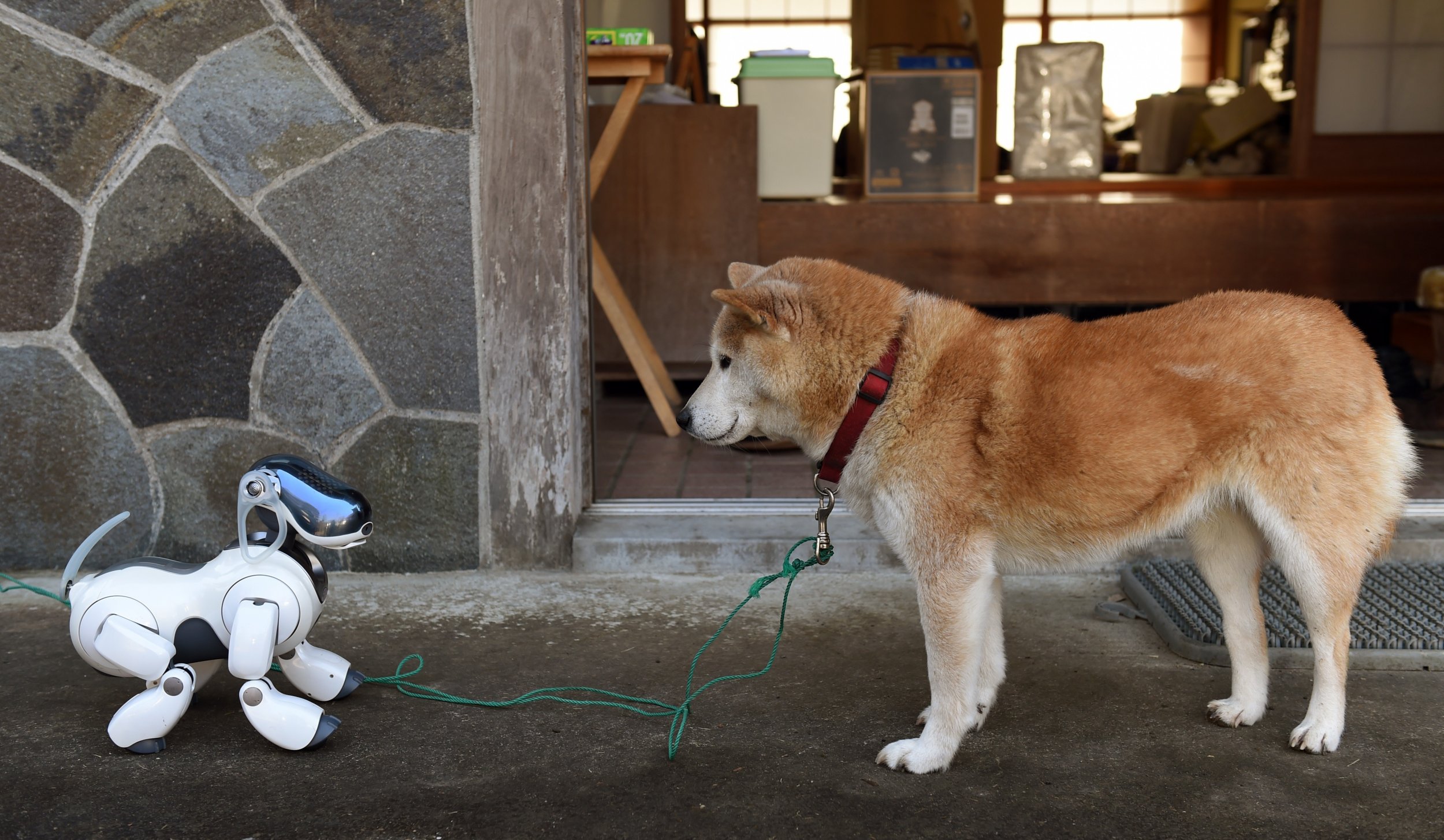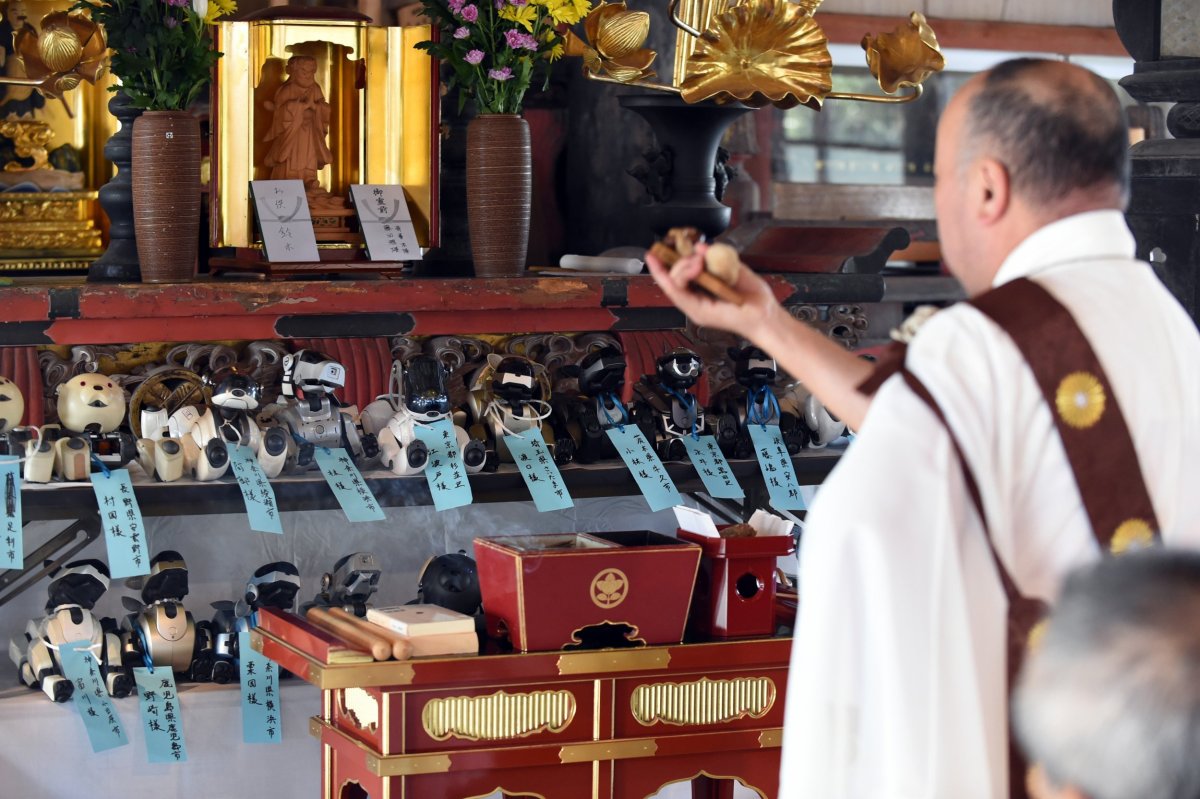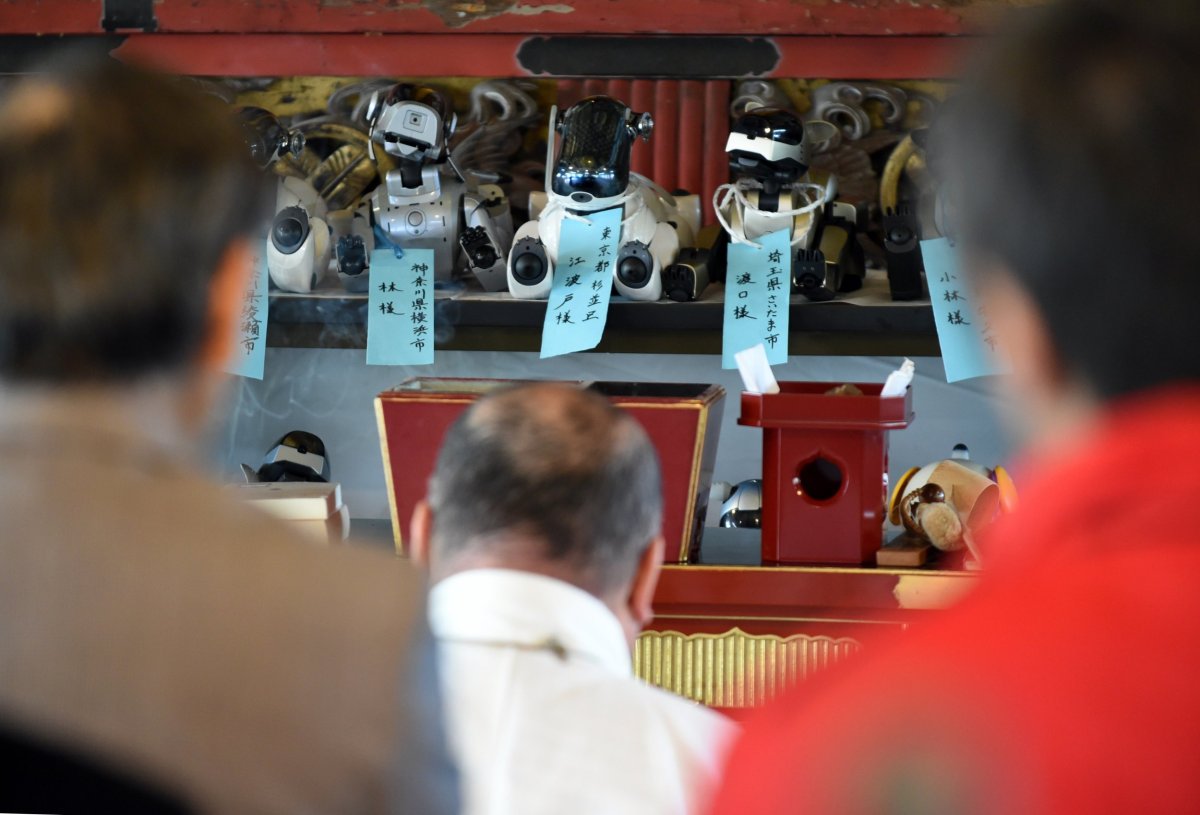
In 1999, Sony launched a robot dog named Aibo in the U.S. and Japan that not only responded to external stimuli, but was able to learn and express itself. These capabilities, a press releasefrom the time explained, "allow each unit to develop a unique personality including behavior shaped by the praise and scolding of its owner." And Aibo, short for "Artificially Intelligent Robot," quickly became a hit--especially in Japan.
At around $600 to $2,000 a pup, each iteration of Aibo cost less than some real dogs. And the perks didn't end there. "When I leave on holiday I can just turn him off, I don't need to feed him," Hideko Mori, a robot dog owner of eight years, told AFP. "He doesn't need taking out, well, not exactly. From time to time he cocks his leg and there's this noise like water running. It's a beautiful noise."
Mori purchased the pooch after the death of her husband and, like many other Aibo owners, became attached to her unique cyborg companion.
"I can't imagine how quiet our living room would have been if Ai-chan wasn't here," Sumie Maekawa, a longtime Aibo owner, told The Wall Street Journal, using an honorific suffix applied to girls' names.
Tatsuo Matsui, who owns two digital dogs with his wife, added, "I can't risk my precious dogs because they are important members of our family."
Despite the loyal fanbase, Sony decided to discontinue the bot in 2006, after selling around 150,000 units.
"Our core businesses are electronics, games and entertainment, but the focus is going to be on profitability and strategic growth," a Sony spokeswoman said at the time. "In light of that, we've decided to cancel the Aibo line."
For years following the announcement, Sony would repair Aibos that experienced technical difficulties. But in July 2014, those repairs stopped and owners were left to look elsewhere for help.
"The first time I spoke directly to a client he told me, 'He's not very well, can you examine him?'" Hiroshi Funabashi, a robot dog repairman, told AFP. "I realized he didn't see it as a robot, but as a member of his family whose life was more important than his own."
The Sony stiff has led not only to the formation of support groups--where Aibo enthusiasts can share tips and help each other with repairs--but has fed the bionic pet vet industry.
"The people who have them feel their presence and personality," Nobuyuki Narimatsu, director of A-Fun, a repair company for robot dogs, told AFP. "So we think that somehow, they really have souls."
While concerted repair efforts have kept many an Aibo alive, a shortage of spare parts means that some of their lives have come to an end. The following images show the funerals of 19 Aibos that engineers at A-Fun were unable to save.

Each formerly automated animal is wearing a tag with its owner's name, as well as where it is from.

Newsweek reached out to Sony about Aibo's gradual extinction and those who are watching their not-so-furry friends vanish, but they declined to comment.
"It's not at all unusual for people to develop strong emotional attachments to non-living objects or machines," says cyberpsychologist Eleanor Barlow, giving the common examples of naming a car, or a child becoming attached to a doll. "Research suggests this can happen in order to satisfy a need in us...to care for something to improve our own sense of well-being or by way of a child substitute."
As artificially intelligent machines are increasingly incorporated into our modern lives, Barlow forsees people substituting robot interfacing for human interaction. And when a machine resembles something living (like Aibo), people are likely to both form a stronger bond to it and feel a greater sense of loss when it vanishes, she added.
The funerals show that this notion is not so far-fetched.
Uncommon Knowledge
Newsweek is committed to challenging conventional wisdom and finding connections in the search for common ground.
Newsweek is committed to challenging conventional wisdom and finding connections in the search for common ground.
About the writer
Lauren is a reporter covering technology, national security and foreign affairs. She has previously worked on award winning teams at ... Read more
To read how Newsweek uses AI as a newsroom tool, Click here.








